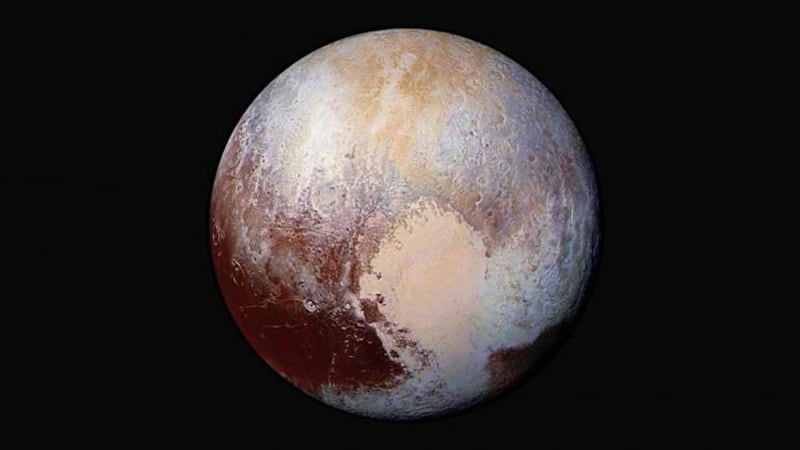Ever since Pluto was downgraded and given the “dwarf planet” status in 2006, debates have been raging among the scientific community about whether the decision was justified.
But now, more than 12 years after members of the International Astronomical Union (IAU) voted in new rules for defining planets and concluded that Pluto didn’t make the cut, scientists in the US are once again presenting an argument for reclassification.
Their point? The reason why Pluto lost its status – after 76 years of sitting alongside the eight other proper planets – is not valid.
The IAU defines a planet as a celestial body that is in orbit around the sun, has sufficient mass that its gravity pulls it into an almost round shape, and has cleared the neighbourhood around its orbit.
As Pluto’s orbit overlaps with Neptune’s, it doesn’t have a clean orbital path around its host star, the sun, and hence no clear neighbourhood.
In addition, it also shares its orbit with frozen gases and objects in the Kuiper belt, meaning it is unable to cement its status as a “planet”.
However, in a paper based on new research, Dr Philip Metzger, a planetary scientist at the University of Central Florida in Orlando, says astronomers should rethink their decision to snub Pluto.

His argument is that the list of criteria set by the IAU that define a planet is flawed.
Dr Metzger said: “The IAU definition would say that the fundamental object of planetary science, the planet, is supposed to be defined on the basis of a concept that nobody uses in their research.
“And it would leave out the second-most complex, interesting planet in our solar system.
“We now have a list of well over 100 recent examples of planetary scientists using the word planet in a way that violates the IAU definition, but they are doing it because it’s functionally useful.
“It’s a sloppy definition. They didn’t say what they meant by clearing their orbit.
“If you take that literally, then there are no planets, because no planet clears its orbit.”
He argues that the “clear” orbit requirement isn’t useful in determining status, instead suggesting that the real defining feature of a planet should be whether or not it is big enough, and creates enough gravitational force to become spherical in shape.
People don't realize how empty the Kuiper Belt is. Although there are hundreds of planets in it, the planets in the inner solar system are 1000 times more crowded. Pluto's orbit is far clearer than Earth's. Sure Pluto can't "clear" its orbit, but this has no significance.
— Dr. Phil Metzger (@DrPhiltill) September 9, 2018
He added: “It turns out this is an important milestone in the evolution of a planetary body, because apparently when it happens, it initiates active geology in the body.”
Dr Metzger says that Pluto, for instance, has an underground ocean, a multilayer atmosphere, organic compounds, evidence of ancient lakes and multiple moons – which all point to an active and complex geological process.
He added: “It’s more dynamic and alive than Mars.
“The only planet that has more complex geology is the Earth.”
The other argument made by Dr Metzger and his colleagues is that their review of the scientific literature from the last 200 years has shown that the real division between planets and other celestial bodies, such as asteroids, occurred only in the early 1950s when Gerard Kuiper published a paper that made the distinction based on how they were formed.
Dr Kirby Runyon, of Johns Hopkins University Applied Physics Laboratory in Laurel, Maryland, described the IAU’s definition as “erroneous” saying that their literature review showed that clearing orbit is not a standard that is used for distinguishing asteroids from planets.
Dr Runyon added: “We showed that this is a false historical claim.
“It is therefore fallacious to apply the same reasoning to Pluto.”
Last year, astronomers proposed a new way to define planets based on “the physics of the world itself”.
A group of Nasa scientists came up with a new definition of the word “planet” which said: “In keeping with both sound scientific classification and peoples’ intuition, we propose a geophysically based definition of ‘planet’ that importantly emphasises a body’s intrinsic physical properties over its extrinsic orbital properties.”
The key aspect of this bold definition, which was presented at the Lunar and Planetary Science Conference in 2017, is that cosmic bodies in the solar system do not need to orbit the sun to be considered planets.
Using this definition would not only reinstate Pluto’s status, but would go as far as adding more than 100 new planets to the solar system.
The report is published in the journal Icarus.









